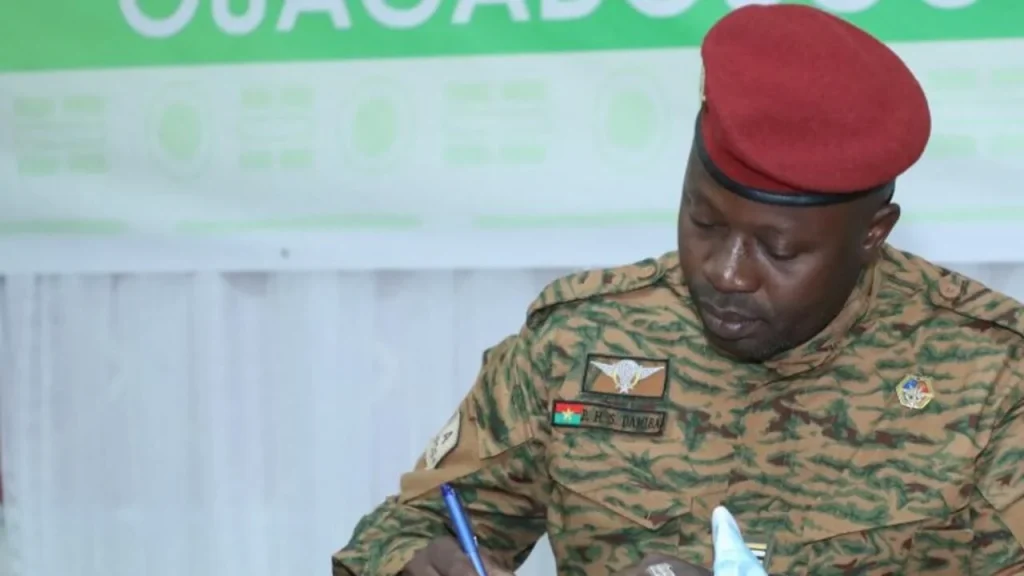Burkina Faso’s military leader, Lieutenant-Colonel Paul-Henri Sandaogo Damiba, has signed a charter establishing a three-year transition period before the country returns to civilian rule.
The announcement comes just over a month after Damiba seized power in a coup that ousted President Roch Marc Christian Kaboré, citing failure to address escalating terrorism.
Transition Timeline and Governance Restrictions
According to the charter, the 36-month transition begins from the date of the president’s inauguration. This period is longer than the 30 months initially proposed by a technical commission formed by the junta.
The extension was decided after consultations with civil society groups, political parties, trade unions, displaced persons, and representatives of women and youth organizations.
The document also makes it clear that the transition president and the 25 members of the transitional government will be ineligible to run in the presidential, legislative, or municipal elections that will conclude the transition period.
This measure aims to ensure a neutral political process and avoid conflicts of interest during the restoration of democratic governance.
Objectives of the Transition Period
The junta outlined key priorities for the transition, including strengthening governance, combating corruption, and addressing Burkina Faso’s worsening humanitarian crisis. The country faces widespread displacement, economic challenges, and deep community divisions—much of it caused by insecurity.
A central focus will be the fight against terrorism and the restoration of the country’s territorial integrity. Over the past several years, Burkina Faso has been plagued by deadly attacks linked to jihadist insurgents, leading to thousands of deaths and the displacement of more than 1.5 million people.
Background to the Coup
Damiba took control in January after accusing President Kaboré of failing to stem the violence that has destabilized large parts of the country. His leadership comes amid growing frustration among citizens over the government’s inability to protect communities from extremist attacks.
The junta has framed the transition as a critical opportunity to rebuild state authority, improve national security, and lay the groundwork for lasting peace before organizing elections.
However, the length of the transition period has already sparked debate, with some observers concerned it could delay a return to democratic rule longer than necessary.






